HDR pizza night at Saint Lucy's
April 2025
“We had another successful HDR pizza night at Saint Lucy's!" says CBCS HDR represetative Maddison Brown. "It was a perfect way to celebrate many students passing their progress reviews for this research quarter".
Held every research quarter, HDRs are invited to come along for pizza and drinks to mingle and meet new HDRs and celebrate their many achievements throughout the last three months. "We are so lucky to be apart of such a vibrant and fun community at CBCS. Thanks for a great evening", Maddison says.
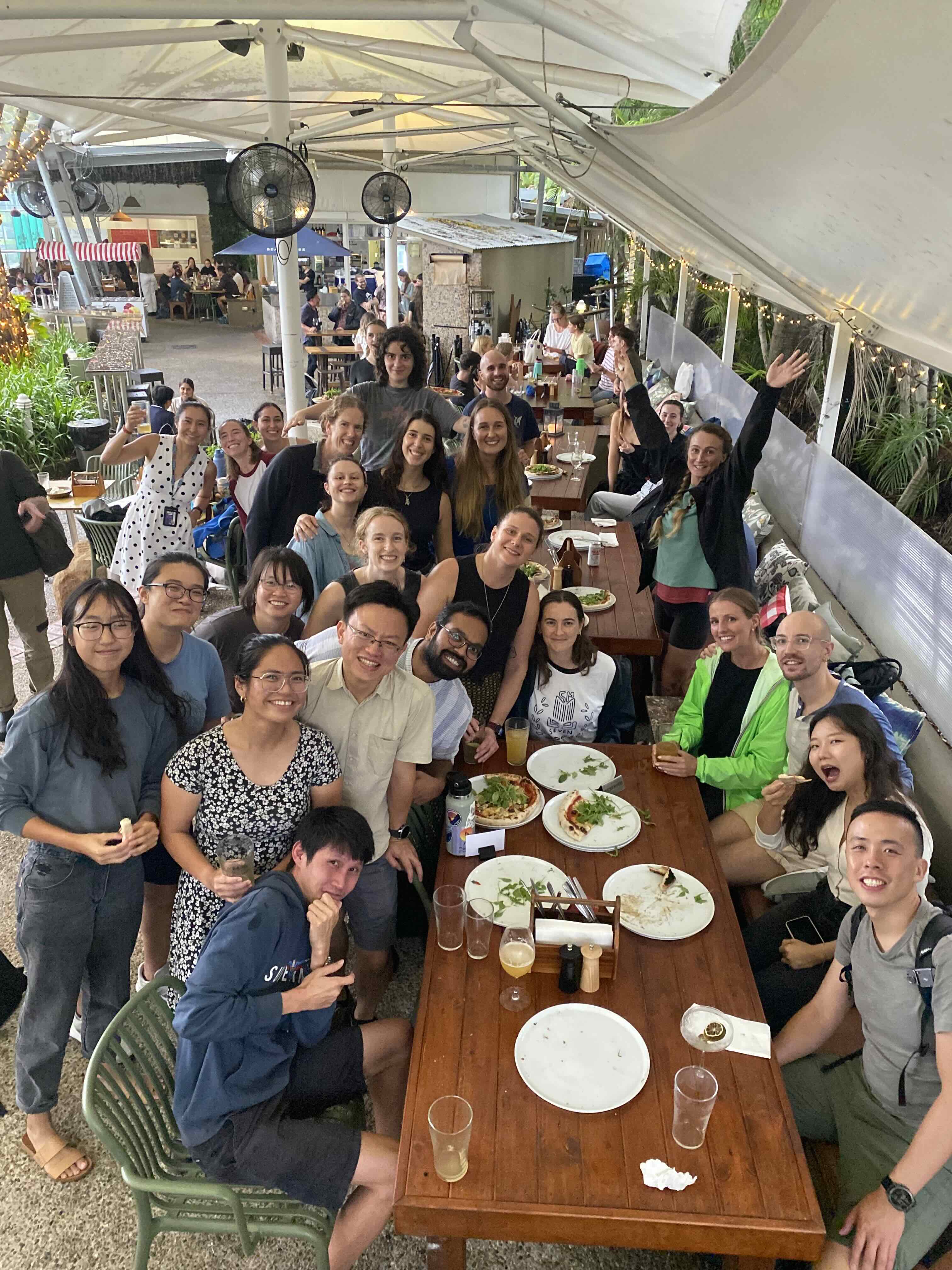
Image credit: Dr Lily Bentley
To keep up to date on our latest events, check out our Bluesky and LinkedIn.
A deep dive into climate connectivity
April 2025
Professor Anthony Richardson and PhD candidate Kristine Buenafe have published a piece in Nature Climate Change News and Views titled “A deep dive into climate connectivity”. As the climate changes, species are on the move, shifting their ranges across the land- and seascape. In this piece, the authors take a deep dive into Lin et al. (2025)’s work on analysing depth-resolved climate connectivity and how this can be influenced by human activities. They reveal that deep-sea species face greater disruption to their climate connectivity than life near the surface. This is a valuable first step toward including human activities in marine climate connectivity research.
Read the piece in full here.
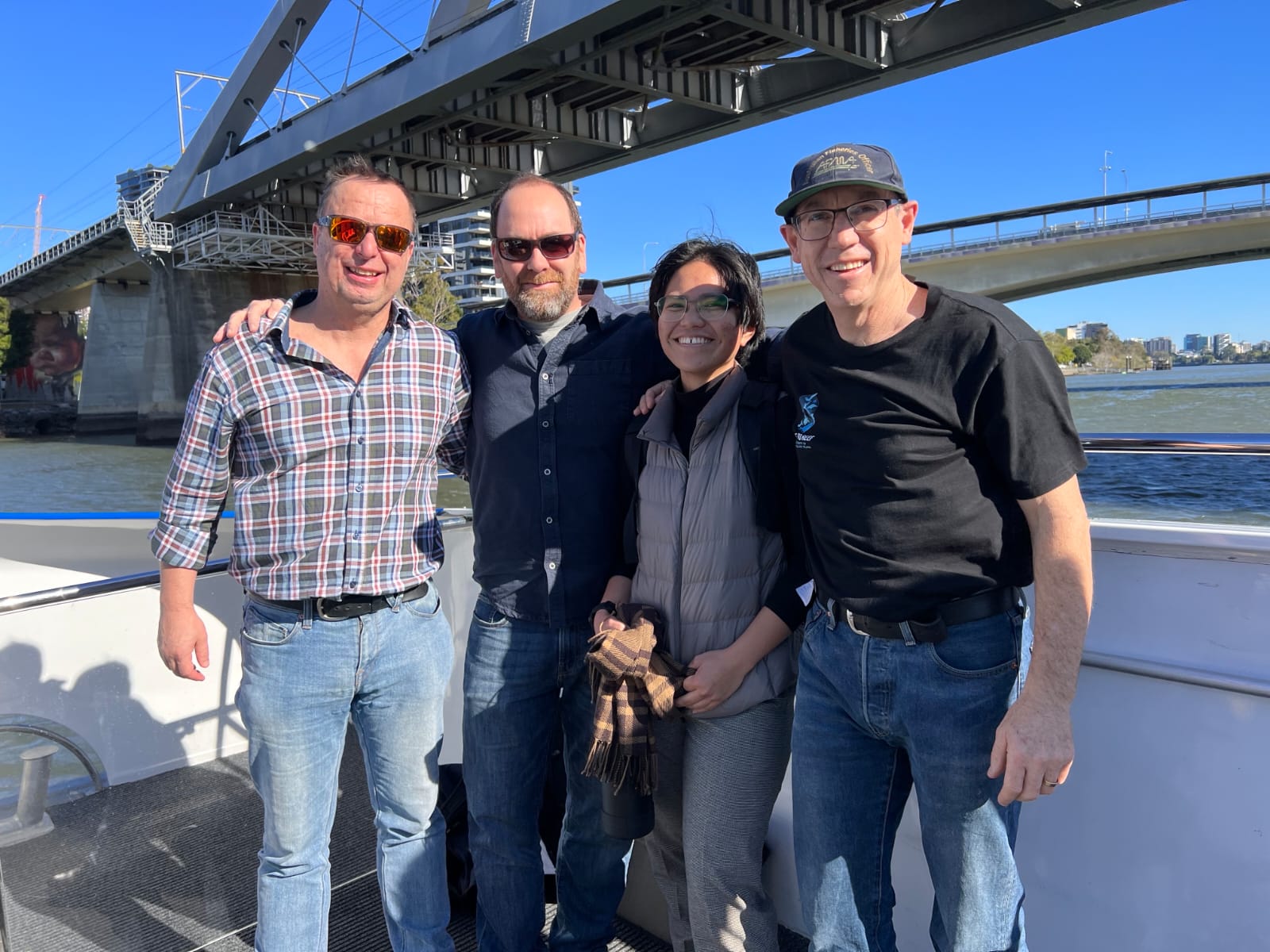
Image credit: Pablo Granados-Diesseldorf
To keep up to date on our latest events, check out our Bluesky and LinkedIn.
Achieving at-scale seascape restoration by optimising cross-habitat facilitative processes
February 2025
CBCS PhD candidate Maddison Brown has co-authored a paper titled "achieving at-scale seascape restoration by optimising cross-habitat facilitative processes", which was led by Dr Maria Vozzo, and published in npj Ocean Sustainability. "The idea behind this paper was born from a collaborative workshop on Heron Island Research Station with researchers from CSIRO, UQ, UniSC and Griffith," Maddison says. "Mornings were spent snorkelling and exploring the island before we spend the day workshopping ideas about multi-habitat restoration led by Dr Maria Vozzo".
To scale up seascape restoration effectively, understanding the spatial distances between habitats can improve restoration outcomes. The concept of "cross-habitat facilitation" describes positive interactions between neighbouring habitats (e.g., seagrass and mangroves) that benefit each other. This study investigates six key processes (e.g., wave attenuation, nutrient cycling) and examines the spatial distances in which these processes exist between marine and coastal habitats. These processes can significantly enhance seascape restoration by improving connectivity and ecological function across multiple habitats. However, these processes operate over distances that often exceed typical restoration planning scales.
This study highlights knowledge gaps, especially around spatial scales in which cross-habitat facilitative processes occur, and offers recommendations for integrating facilitative processes into restoration designs for better ecological outcomes and to meet global ecological restoration goals.
Read the full paper here.
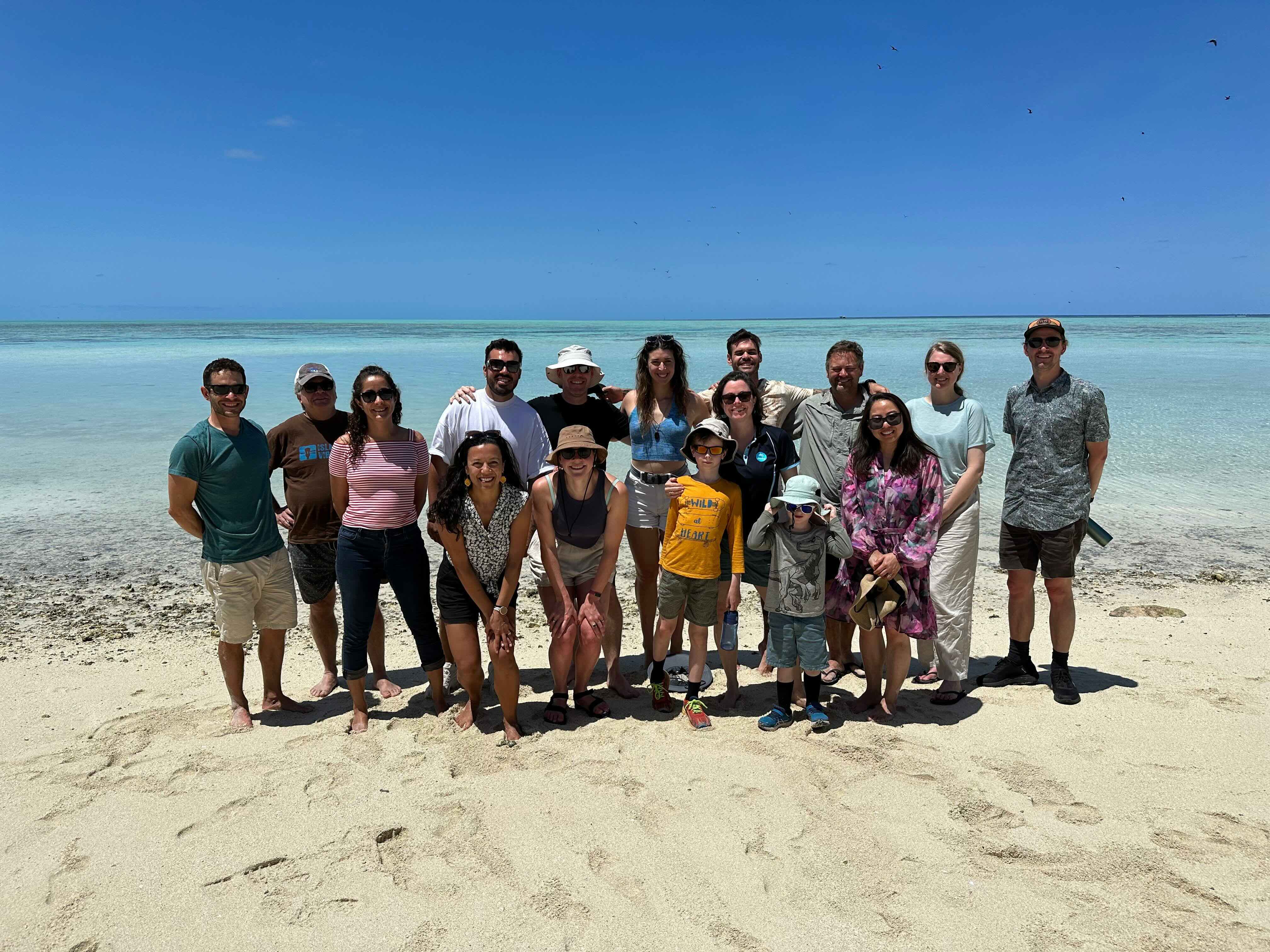
To keep up to date on our latest events, check out our Bluesky and LinkedIn.
Assessing diverse values of nature requires multilingual evidence
Janaury 2025
Associate Professor Tatsuya Amano and Postdoctoral Research Fellow Dr Violeta Berdejo-Espinola have published a paper in Nature Reviews Biodiversity titled "Assessing diverse values of nature requires multilingual evidence". They state that global assessments of people’s values of nature should be based on multilingual evidence to capture the plurality of nature’s values across cultures and languages, avoid overlooking valuable knowledge, and inform policy and decision-making on the basis of unbiased evidence.
"In this piece we discuss the importance of language diversity in evidence syntheses, particularly if these are global assessments like the IPBES. We also suggest practical ways to improve the integration of non-English language knowledge in reviews and biodiversity assessments," Violeta tells CBCS.
Read the full article here.

Image credit: Violeta Berdejo-Espinola and Tatsuya Amano
To keep up to date on our latest events, check out our Bluesky and LinkedIn.
Flight forward: navigating the path to wildlife – aviation coexistence
December 2024
CBCS recently held workshop, "Flight Forward", funded by our Small Grant Scheme and led by Nga-Yee Lai and Shu Chen. “Birds mastered the skies long before planes ever took flight. Inspired by them, we now traverse the heavens. Yet, in modern aviation, these original aviators are often seen as hazards”, Shu Chen says. “Our project, focusing on Brisbane Airport, aims to shift this conflict towards collaboration by fostering dialogue between the conservation sector and the aviation industry. Through a panel discussion between CBCS and aviation practitioners, followed by a site visit to the airport, we are exploring ways to promote wildlife-aviation coexistence through science and practice”. "We applied for the CBCS small grant scheme to foster interdisciplinary dialogue between the aviation industry and the conservation sector," says Yee. "Seeing the event come to fruition, with over 30 participants joining us for workshops and the airport visit, was incredibly rewarding. Experts from both fields came together to exchange knowledge, ideas, and solutions on how aviation safety, operations, and biodiversity can coexist. We are proud to have created a platform for meaningful conversations emphasising balancing aviation safety and biodiversity. We hope the event inspired attendees to adopt nature-friendly practices in aviation, pursue research to address knowledge gaps and strengthen collaborations that benefit both industries."

To keep up to date on our latest events, check out our Bluesky and LinkedIn.
Using weather radar to track Australia’s migrating birds
November 2024
PhD candidate Xu Shi recently published a paper titled "Distinctive and highly variable bird migration system revealed in Eastern Australia". He confirmed for the first time the existence of a structured bird migration system in eastern Australia, by analyzing millions of radar images from the Australian weather radar network.
"Australia's bird migration is quite different from the Northern Hemisphere: it's much smaller in scale, with a larger diurnal component. Flight directions are more dispersed, timing and migration volume also vary much more between years," Xu says. "This study marks the first large-scale quantification of bird migration in Australia, and we hope it opens doors for further research into this fascinating phenomenon."
Read his paper here: https://authors.elsevier.com/a/1jzof3QW8S6GQh

To keep up to date on our latest events, check out our Bluesky and LinkedIn.
Four Steps for Achieving “Nature Positive”
October 2024
CBCS PhD candidates Hannah Thomas and Yi Fei Chung have recently co-led a Policy Forum in Science, co-authored by past and present CBCS members Brooke Williams, Martine Maron, Jonathan Rhodes, Michelle Ward and Jeremy Simmonds. This piece calls for nations to commit to policies that align with nature positive outcomes, and was published to coincide with COP 16, held in late October in Cali, Colombia.
Their recommendations include: (1) legislate for “absolute net gain” and aligned biodiversity targets; (2) limit and fully compensate for any biodiversity loss from development; (3) take substantial additional conservation actions to tackle other threats; and (4) resource effective and transparent implementation and enforcement of such policies.
Australia’s proposed reforms could set a global example, but, as Fei and Hannah note, they must avoid loopholes to truly benefit biodiversity.
Read more in the full paper here: https://www.science.org/doi/10.1126/science.adq9157

To keep up to date on our latest events, check out our Bluesky and LinkedIn.
CBCS Director Daniel Dunn nominated for the 2024 UQ Awards for Excellence
October 2024
CBCS congratulates our Director, Daniel Dunn, on his nomination in the "Leadership" category for the 2024 UQ Awards for Excellence. UQ Awards stated “Under [Daniel’s] leadership, [CBCS] has continued to contribute to UQ’s world-class reputation. The Centre has come 18th globally in environmental science (QS); 6th globally in environment and ecology (NTU). However, more than this, he is proof that a high-performance culture is entirely compatible with empathy, flexibility, and deep respect for those he works with. Whether delivering high-value national and international partnerships and grants, or thoughtfully supporting Higher Degree Research (HDR) students, Associate Professor Dunn is an exemplar of the UQ values who leads with vision, values, and purpose.” The winners will be announced on Monday 18 November. You can read more about the nominees here: https://staff.uq.edu.au/information-and-services/human-resources/recognition-and-reward/uq-awards-excellence/2024-uq-awards-excellence.
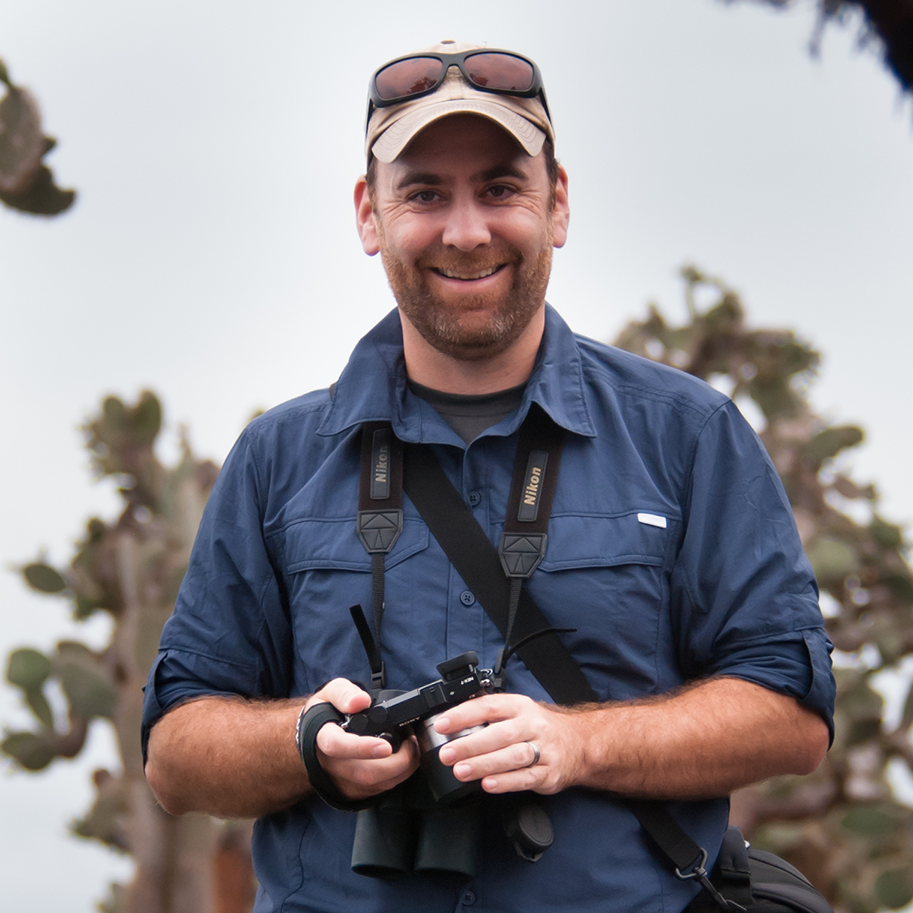
To keep up to date on our latest events, check out our Bluesky and LinkedIn.
Environmental law reform needed to manage trade of Australia’s threatened marine species
October 2024
Rosa Mar Dominguez-Martinez has led a paper in Ocean Sustainability with co-authors including Leslie Roberson and Carissa Klein titled “Environmental law reform needed to manage trade of Australia’s threatened marine species”. Australia is reforming its Environment Protection and Biodiversity Conservation Act, which has been criticised for ineffectiveness. The current Act permits the export of four marine species listed as threatened under its provisions, as well as 13 additional marine species recognised as globally threatened. The authors propose three recommendations for the new legislation: 1) Apply equal precautionary measures to commercially harvested species and other threatened species; 2) Mandate annual reviews of conservation status for threatened species; and 3) Assess species listed in global conservation agreements, applying the precautionary principle to data-deficient species. Read the paper here.

To keep up to date on our latest events, check out our Bluesky and LinkedIn.
A successful pizza night for HDR CBCS students
July 2024
“The CBCS HDR night at Saint Lucy's was a huge success!” says CBCS representative Harrah Friedlander. “We had new Honours students and visiting HDRs through final research quarter PhD students and PhD pups sharing experiences, pizza, and drinks (no drinks for the dogs, and only a little pizza).”
“It was fantastic to see "old-hands" at UQ welcoming the newer faces, and even people who have been here awhile but are in different buildings meet each other for the first time. HDRs were excited to share their research ideas and plans, but also we just had fun talking about everything outside of academia as well” says Harrah.

Photo credit: Harrah Friedlander
To keep up to date on our latest events, check out our Bluesky and LinkedIn.
Examining multilingual matters in scientific publishing
July 2024
CBCS collaborator Henry Arenas-Castro has led a large multidisciplinary team of scholars, many of whom are members of CBCS, in a new study looking at language barriers in the dissemination of scientific knowledge between diverse language communities.
The research revealed that scientific journals are making minimal efforts to foster a multilingual community of authors and readers.
Henry and his co-authors examined the linguistic policies of 736 journals in biological sciences, gathering information from author guidelines and surveys sent to Editors-in-Chief. The study showed further that society-owned and lower- Impact Factor journals were more likely to have policies that are inclusive for non-native English speakers and to promote the multilingualisation of scientific knowledge. The authors concluded the publication by providing a set of actions that can be implemented by journals and urging publishers and journals to act immediately to overcome language barriers in academic publishing.
Read the paper here.

Reference: Arenas-Castro, H., et al. (2024). Academic publishing requires linguistically inclusive policies. Proceedings of the Royal Society B, 291(2018). https://doi.org/10.1098/ rspb.2023.2840
To keep up to date on our latest events, check out our Bluesky and LinkedIn.
Strong progress – from a low base: here’s what’s in NSW’s biodiversity reforms
July 2024
The New South Wales government has announced a major overhaul of its Biodiversity Conservation Act, with the aim of aligning the laws to national and international goals. There is a particular focus on reforming the biodiversity offset scheme, yet experts warn that gaps still remain, particularly regarding how to reduce or stop land clearing.
In this article by The Conversation, Professor Hugh Possingham, Professor Carolyn Hogg and Jaana Dielenberg discuss the challenges of reforming biodiversity offsets and the changes promised by the NSW government. Read the article here.

Photo credit: Jaana Dielenberg
To keep up to date on our latest events, check out our Bluesky and LinkedIn.
Migration count data suggest mostly juvenile Greater Spotted Eagles appear in coastal peninsulas in China
July 2024
PhD candidate Xu Shi recently published his paper, 'Detour for the inexperienced? Migration count data suggest mostly juvenitle Greater Spotted Eagles appear in coastal peninsulas in China'. "This is an important step forward for raptor migration monitoring in China," he says. "Because China is such a vast country with diverse geographical regions, a single survey can reveal only localized numbers and patterns of raptor migration or bird migration in general. This is the first time that multiple teams have joined together to share and compare data that allowed us to investigate patterns over a large area. We are now moving forward to build a national-wide raptor migration monitoring network that will hopefully achieve more extensive coverage and help us better understand the status and trends of raptor migration in China."
Read the paper here: https://doi.org/10.1016/j.avrs.2024.100183

Photo credit: San Niu
To keep up to date on our latest events, check out our Bluesky and LinkedIn.
Reducing the entrance diameter is a simple solution to keep non-target species out of nest boxes
July 2024
Alexander Hendry, former CBCS Honours student and 2023 graduate, has recently published a paper titled ‘Reducing nest box entrance diameter impacts mammal occupancy’ with his supervisor Professor Salit Kark and CBCS alumni Andrew Rogers.
During his honours project, Hendry found that the occupation of nest boxes by brushtail possums likely limited their effectiveness for bird conservation. The research team expanded on this initial project and identified that nest boxes with an entrance diameter of 50 mm or less could not be occupied by brushtail possums. “These results show that restrictor plates are a simple, low-cost solution to prevent predatory and competitive brushtail possums from occupying nest boxes intended for other species,” says Hendry.
However, reducing the entrance diameter to 50 mm did not exclude squirrel gliders, the invasive common myna and European honeybees from occupying nest boxes. “The occupation of nest boxes by these species demonstrates the difficultly in excluding non-target species that are the same size as target species,” says Hendry. “This study is part of the Kark Biodiversity Research Group’s long-term work on interactions between native and invasive birds and mammals and their implications for conservation,” says Kark. The research team recommends that future research on nest boxes in Australia should investigate alternative strategies to exclude non-target species such as entrance extenders and internal restrictor plates, which have been used successfully overseas.
Read the paper here, and read more about the Kark Group’s work on invasive species here.
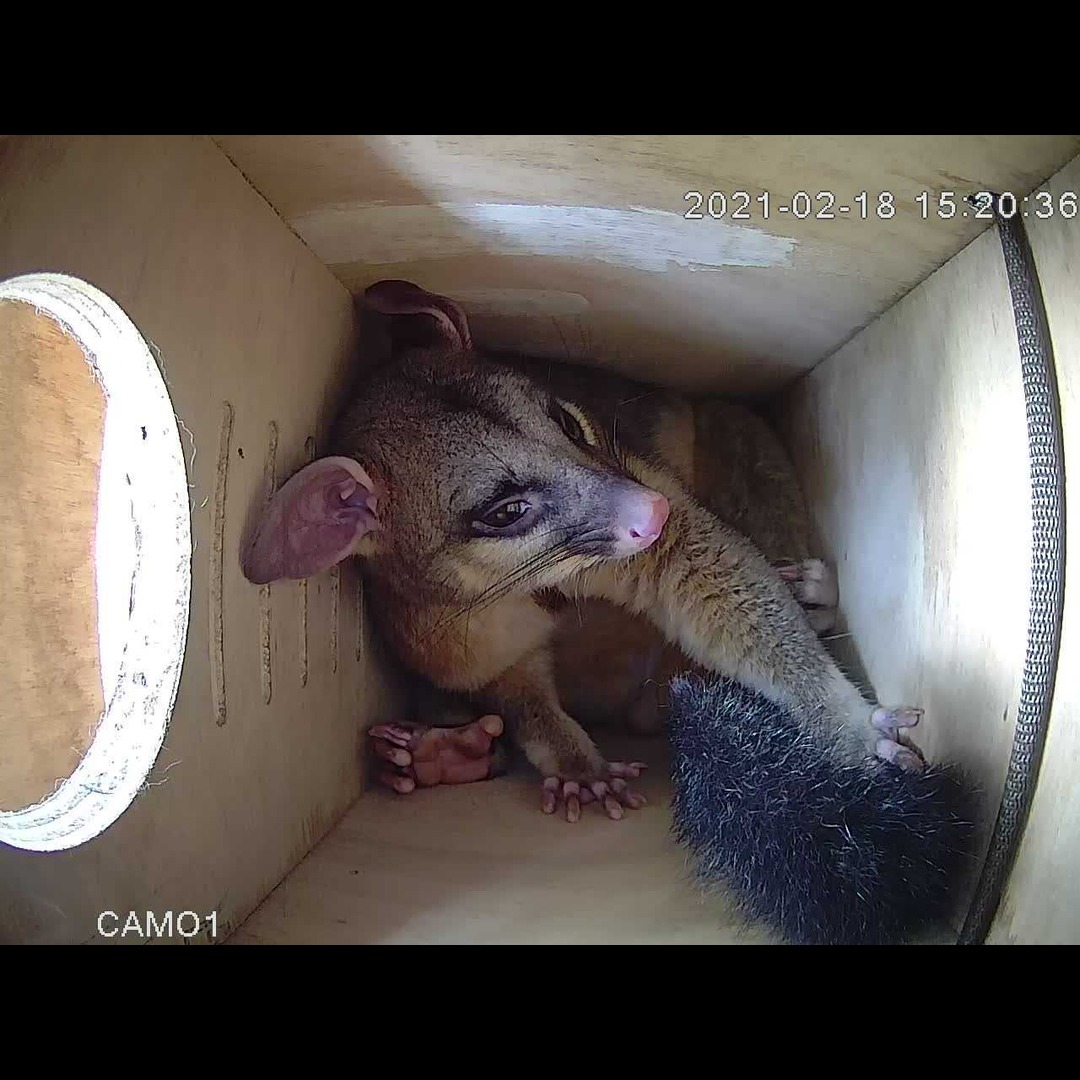
Photo credit: Alexander Hendry
To keep up to date on our latest events, check out our Bluesky and LinkedIn.
Non-English language conservation documentaries
July 2024
In a recent paper, CBCS Honours student Haonan Wei and the translatE project’s Dr Tatsuya Amano and Dr Violeta Berdejo-Espinola investigated the opportunities and challenges for nature documentaries in China.
The team aimed to raise public awareness of conservation issues, by assessing the thematic, geographical and taxonomic coverages of these documentaries. They found that Chinese language nature documentaries provide unique information on biodiversity and ecosystems in China, and play an important role in raising conservation awareness in China and worldwide.
The paper also shows an urgent need to import and create more nature documentaries on under-represented, but critically important, realms/biomes (i.e., freshwater realm and deep-sea biome) and taxa (i.e., invertebrates, plants and fungi) and anthropogenic threats.
Read the paper here: doi.org/10.1016/j.biocon.2024.110522
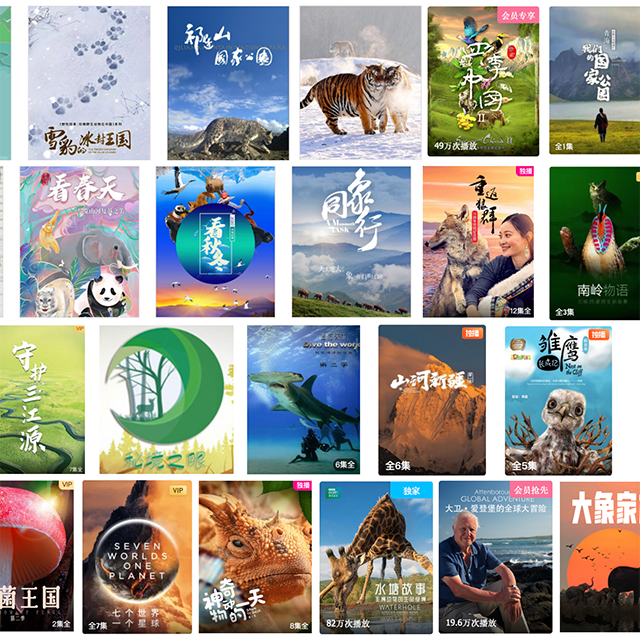
Photo credit: Haonan Wei.
Reference: Wei, H., Berdejo-Espinola, V., Ma, Y., & Amano, T. (2024). Content analysis of nature documentaries in China: Challenges and opportunities to raise public conservation awareness. Biological Conservation, 292. https://doi.org/10.1016/j.biocon.2024.110522
To keep up to date on our latest events, check out our Bluesky and LinkedIn.
Transcending language barriers: wins for science
June 2024
CBCS PhD candidate Kelsey Hannah has recently led a paper with co-author Neil Haddaway, and CBCS supervisors Dr Tatsuya Amano and Professor Richard Fuller, that reveals important findings for improving the quality of ecological research worldwide.
Systematic reviews often overlook non-English literature, but this literature may hold valuable insights. This study of 72 systematic reviews and maps from the journal Environmental Evidence reveals that 44% of articles excluded non-English sources. A survey of authors of the papers reveals a variety of explanations for this exclusion, such as time or resource constraints.
Kelsey and their co-authors propose several solutions to help alleviate the barriers faced by authors in aiming to include non-English language literature, such as diversification of the review team, machine translation and incorporating translation costs into funding applications. Kelsey and their co-authors’ study highlights the need for broader language inclusion in ecological research to reduce bias and enhance evidence quality. This study works to support the translatE project (translatesciences.com), which focuses on the often-overlooked challenge of transcending language barriers in science.
Read the article here: doi.org/10.1002/jrsm.1699

Reference Hannah, K., Haddaway, N.R., Fuller, R.A., & Amano, T. (2024). Language inclusion in ecological systematic reviews and maps: barriers and perspectives. Research Synthesis Methods, 2024: 1-17. https://doi.org/10.1002/jrsm.1699
To keep up to date on our latest events, check out our Bluesky and LinkedIn.
Dr Lily Bentley presents at CMS COP14 and gains feature in Australian Geographic magazine
May 2024
Dr Lily Bentley, a movement ecologist and Postdoctoral Research Fellow at UQ, recently attended the Convention on Migratory Species (CMS) COP14 to share her work on migratory species - which was also featured in Australian Geographic.
The 14th Meeting of the Conference of the Parties to the Convention on the Conservation of Migratory Species of Wild Animals (CMS COP14) took place in Samarkand, Uzbekistan, from 12 to 17 February 2024. "As a scientist, it was fascinating to see the way that international conservation policies and priorities are discussed and agreed upon, and to consider how we can be strategic in our work to support decision-making in that space," Bentley says.
"Presenting in a side-event coordinated by Birdlife International on marine flyways was particularly exciting, as in addition to presenting UQ research I was able to meet and speak with delegates from NGOs, UN bodies, and national governments, who want to collaborate to protect migratory species," she says.
As for her Australian Geographic coverage, Bentley wrote on LinkedIn that she was "absolutely stoked" to have contributed to a magazine which she had "read and collected every edition" of as a child.

To keep up to date on our latest events, check out our Bluesky and LinkedIn.
PhD student Chloe Dawson presents at International Association for Impact Assessment conference
May 2024
PhD student Chloe Dawson recently presented her talk, 'using a buffer-based approach to make global assessments on mining impacts' at the International Association for Impact Assessment conference in Dublin, Ireland. Her PhD research focuses on understanding where to source energy transition metals for climate change mitigation with reduced impacts on biodiversity. "The conference was a great opportunity to network and engage with the broader industry and academic community. It has already led to several post-conference meetings, and new friends who share a passion for conservation," Dawson says.

Photo credit: Laura Sonter, LinkedIn
To keep up to date on our latest events, check out our Bluesky and LinkedIn.
Well-being from nature exposure depends on socio-environmental contexts in Paraguay
May 2024
Postdoctoral research fellow Violeta Berdejo-Espinola has just published a paper with co-authors Professor Richard Fuller and Associate Professor Renee Zahnow in Nature Cities titled “Well-being from nature exposure depends on socio-environmental contexts in Paraguay”.
Notably, the researchers found that while in wealthier areas of Paraguay people are healthier in greener neighbourhoods, but interestingly, in the poorest communities, having plenty of nature around where a person lives is actually correlated with lower health and wellbeing. "This could be an important finding globally for how we provide and maintain nature spaces in the poorest areas of cities, including in Australia. Very few studies have ever included the very poorest neighbourhoods in a city – research has largely overlooked or excluded those people," says Berdejo-Espinola.
"The lessons are that we need to ensure green spaces in the most socio-economically disadvantaged neighbourhoods are high quality, well maintained, and have low risks of environmental hazards such as flood, fire and pestilence. This is deeply challenging, because there are structural economic forces restricting people’s choices about where to live," she says.
Read the paper here.
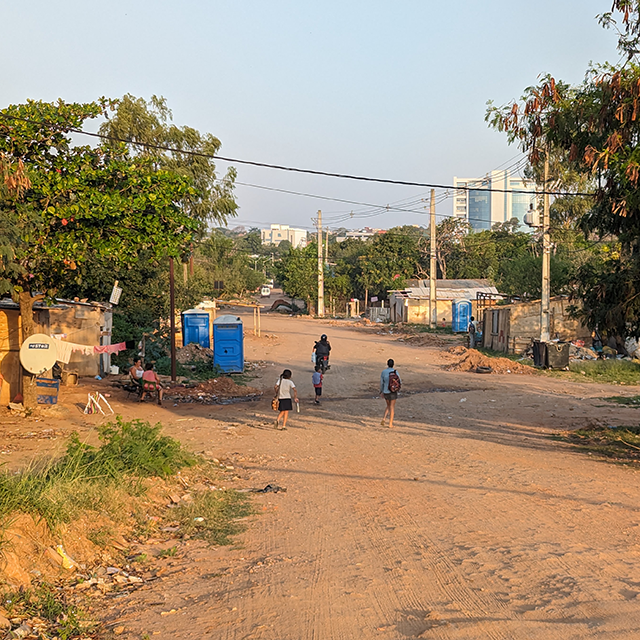
Photo credit: Violeta Berdejo-Espinola
To keep up to date on our latest events, check out our Bluesky and LinkedIn.
Dr Lily Bentley and Associate Professor Carissa Klein perform at the Brisbane Comedy Festival
May 2024
CBCSers Dr Lily Bentley and Associate Professor Carissa Klein performed at the Brisbane Comedy Festival last weekend as part of The Future Science Talks Comedy Edition.
Lily Bentley, a movement ecologist and Postdoctoral Research Fellow at UQ, told us “it was an amazing opportunity to chat to the public about conservation, and learn a lot about how to tell an entertaining story along the way!”
ARC Future Fellow and Deputy Director of CBCS, Carissa Klein, also shared a similar sentiment stating “it was a great way to get an important conservation message out to an audience I would not normally reach”.
Congratulations to Lily and Carissa, and thank you so much to our CBCS community who showed up to support the duo.
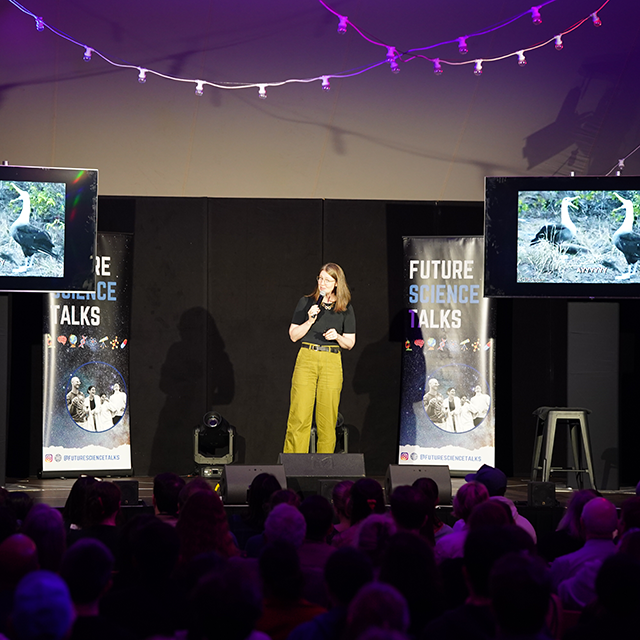
Photo credit: David Crisante from Future Science Talks
To keep up to date on our latest events, check out our Bluesky and LinkedIn.
Nature positive must not become greenwashing
September 2023
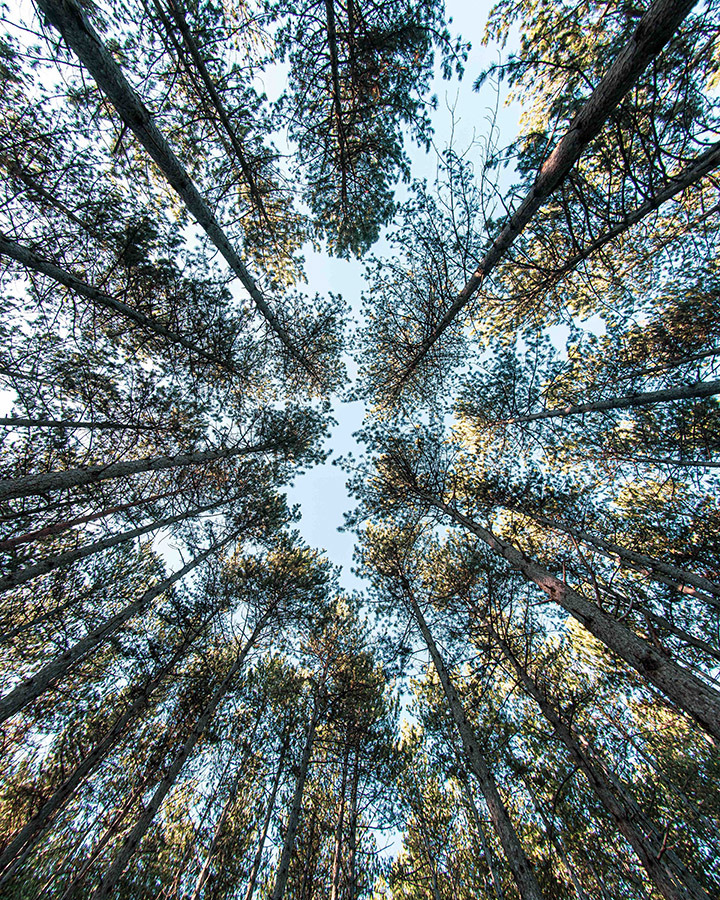
Professor Martine Maron has led a paper with co-authors Drs Megan Evans and Sophus zu Ermgassen and others in Nature Ecology and Evolution titled “’Nature positive’ must incorporate, not undermine, the mitigation hierarchy”.
The authors argue that for the hot topic of nature positive to succeed as the lodestar for international action on biodiversity conservation, it must build on lessons learned from the application of the mitigation hierarchy – or risk becoming mere greenwash.
Read the paper here, a UQ News story about the research here, and a Conversation piece here.
Image: DaYsO/Unsplash
Tatsuya Amano on the costs of being a non-native English speaker in science
September 2023
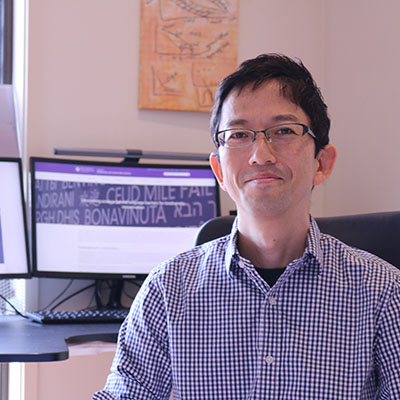
The world-leading work of Dr Tatsuya Amano has featured in an ABC News article about the cost to environmental science with English being the most common language for science publications, and the toll of the impact of language barriers for non-native English speakers.
The article references the paper Tatsuya led that was published in PLOS Biology in July 2023 (“The manifold costs of being a non-native English speaker in science”) and also links to Tatsuya’s ARC-funded project, translatE.
In the paper Tatsuya revealed the profound disadvantages for non-native English speakers in conducting science. In another recent paper Tatsuya showed that important evidence for conservation in biodiversity hotspots is often published in languages other than English, with grave implications for the protection of many species around the world. Read the ABC News article here, and also a Conversation article, and coverage by Nature and Science.
Image of Tatsuya by Mari Amano
Keeping the beat with palm cockatoos
September 2023
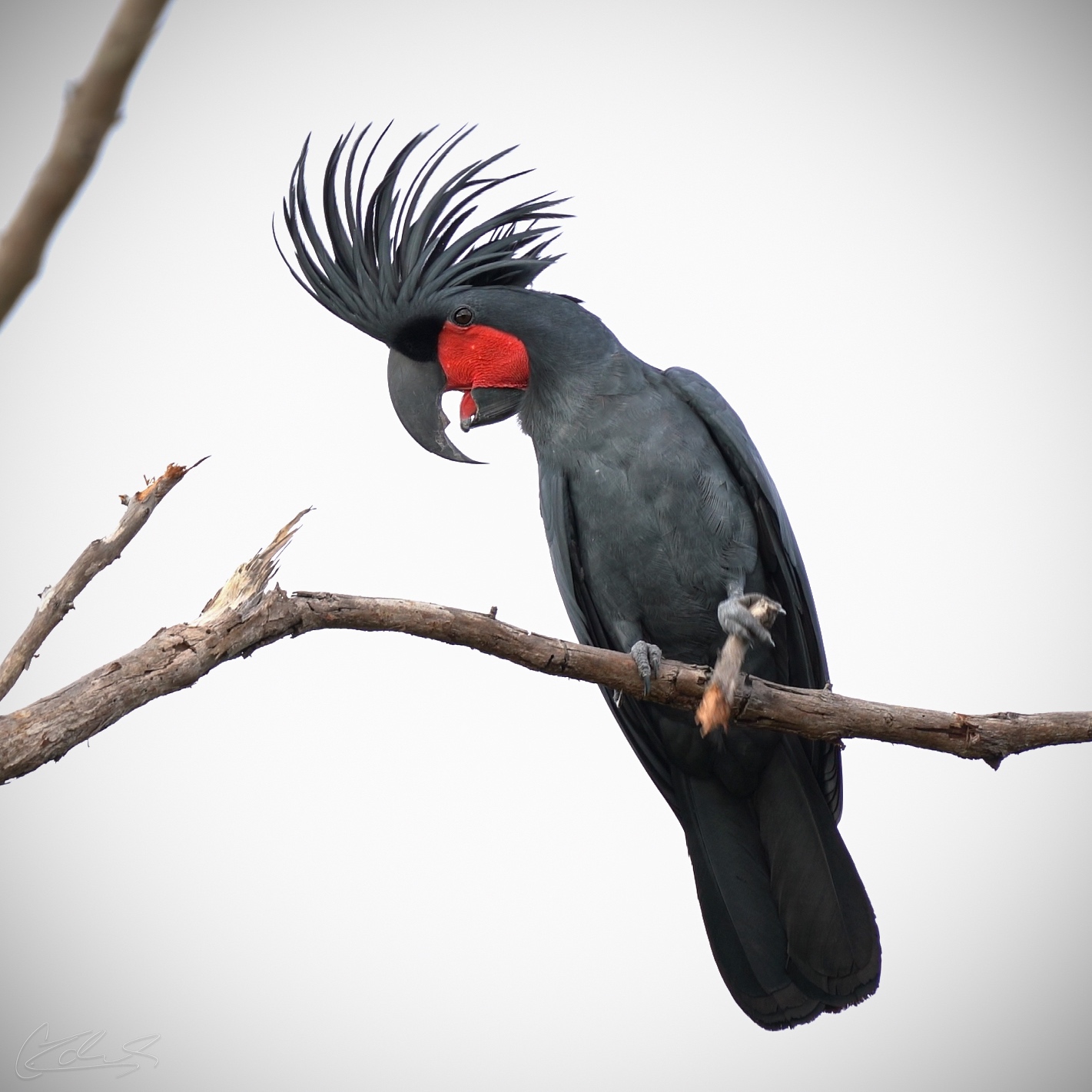
Dr Christina Zdenek has co-authored a paper with Rob Heinsohn and others in Proceedings of the Royal Society – Biological Sciences titled “Individual preferences for sound tool design in a parrot”.
Most cases of tool manufacture in parrots have been in captivity; in the wild, only palm cockatoos (Probosciger aterrimus) have been observed to use tools regularly. However, these native Queensland birds are unusual because they use tools to enhance their displays rather than for foraging or self-maintenance. Male palm cockatoos, the “Ringo Starrs” of the bird world, make tools that they tap rhythmically against trees during display.
Christina and her authors, in a project that stretched over 10 years, analysed 256 sound tools retrieved from 70 display trees. They found that individual males differed significantly in the design of their drumsticks, including the length, width and mass, but no evidence was found that neighbours copied each other.
Read the paper here, a Research Highlight piece in Nature here that includes a three-minute video, an ABC News piece here and a Guardian Australia article with pics by Christina here.
Image: A male palm cockatoo drumming during a territorial display. Image: CNZedenek
Koalas and offsets: developer funds are insufficient
July 2023
Professor Jonathan Rhodes led a paper published in July 2023 in People and Nature along with Professor Martine Maron, Shantala Brisbane and others titled “Performance of habitat offsets for species conservation in dynamic human-modified landscapes”. The authors achieved huge coverage from the media for this work, which focuses on offsets for koalas in the fast-developing south-east Queensland region and a government scheme which allows developers to make financial payments to compensate for environmental consequences.
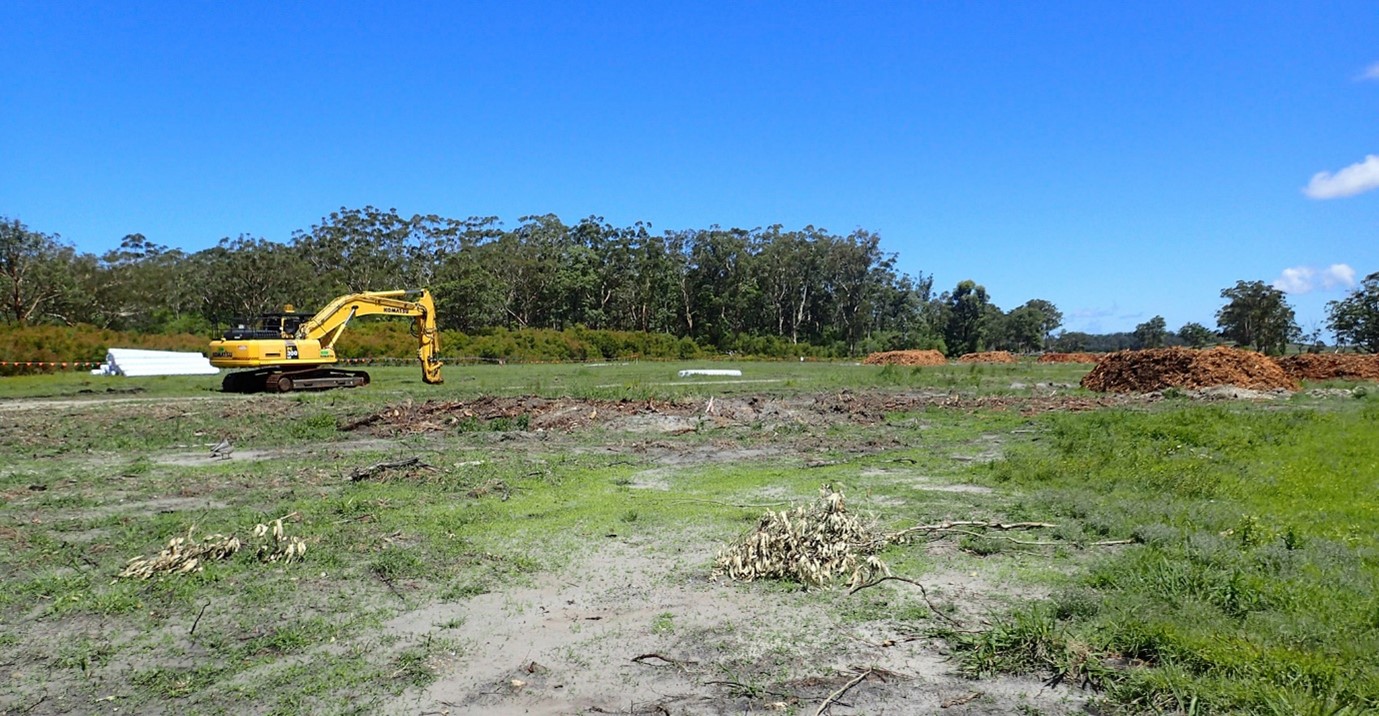
However, these financial payments made by land developers to offset their impacts on threatened species may fall short. When the availability of offsets is low (i.e., there aren’t many suitable sites available to locate offsets) this risks developer funds being insufficient to cover the cost of the required offsets. With suitable locations to locate offsets becoming increasingly difficult to find, this financial risk is likely to be very real.
The study mapped and modelled development in eight Local Government Areas (LGAs) within the South East Queensland Planning Region, applying ecological data and projecting anticipated development and offset outcomes.
While the researchers propose some solutions, they also call for consideration of immediate changes to the current offset policy.
The story was covered by ABC programs, ABC News across Queensland and other eastern states, InQueensland, 4BC News, numerous metro and regional Channel 10 stations, various print and online newspapers up and down the eastern seaboard, Sky News, in New Zealand in online news stories, and in online science mags Scienmag and ECO Magazine. As of late July, the potential reach of the story was an astounding 110,490,145 unique views, with an advertising value equivalency of $1,022,034.
You can read the paper here, a press release here, a UQ News piece here, and a Conversation article here, listen to an ABC Radio interview with Jonathan here and watch a 10 News video of Jonathan talking about this work here.
Image: Koala habitat being cleared in south-east Queensland. Image: Jonathan Rhodes
Drones and endangered waterbirds: Josh Wilson investigates
July 2023
CBCS PhD candidate Joshua Wilson led a paper published in July 2023 in the Journal of Applied Ecology along with co-authors Dr Tatsuya Amano and Professor Rich Fuller titled “Drone-induced flight initiation distances for shorebirds in mixed-species flocks”.
This research shows the alarming impact of drones on one Critically Endangered shorebird species, the eastern curlew, which became startled and flew off even when drones flew above them at the legal ceiling of 120 metres. This also had a domino effect on nearby less sensitive species, which would nevertheless also become startled in response to the eastern curlews’ reaction.
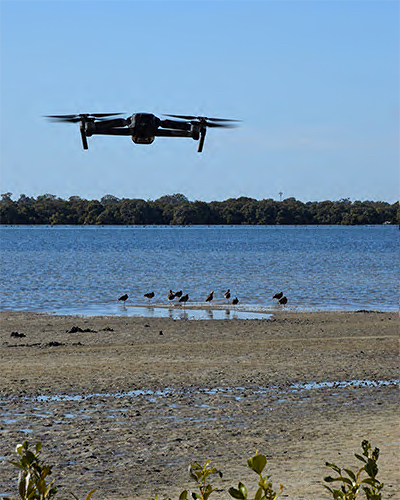
The authors conducted 240 drone approaches of mixed-species flocks containing roosting non-breeding shorebirds in Moreton Bay, enabling them to estimate the factors influencing disturbance as well as the distance of an approaching drone at which the flock is likely to take flight.
Josh and his co-authors determined the drone-induced flight initiation distance for a total of 12 species of waterbird, including seven shorebirds. They conclude that drone use needs to be carefully regulated to ensure roosting shorebird flocks are not approached within distances that will disturb the most sensitive species and that alternatives to drone surveys should be sought wherever disturbance data for species are unavailable.
Read the paper here, a UQ News piece here, an article in The Conversation here and an ABC News article here.
You can also view a video of a drone approaching shore birds here.
Image: Drones pose a threat to shorebirds. Image: Joshua Wilson
Exploding populations of monkeys and pigs in SE Asia posing rising threats
June 2023
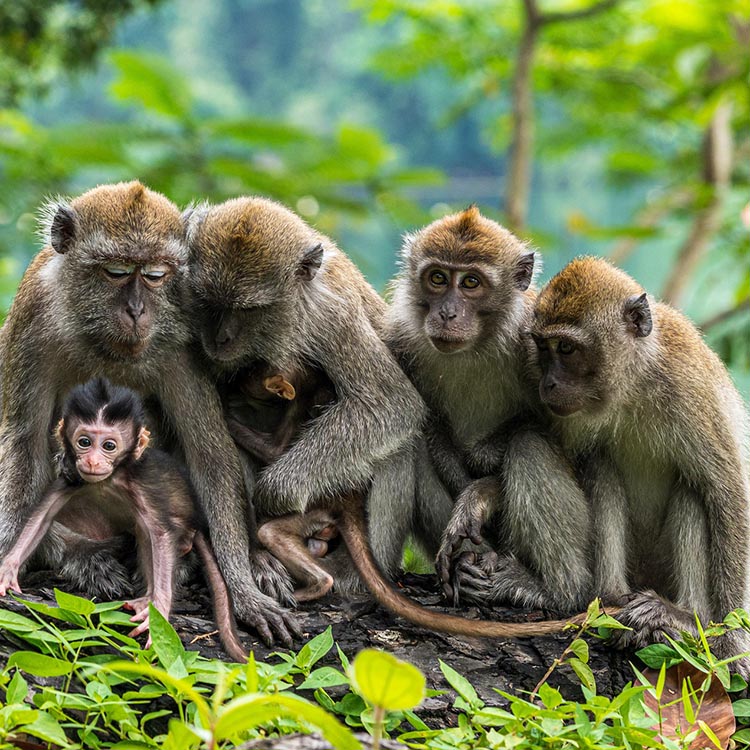
Above: A family of long-tailed macaques. HIT1912/Adobe Stock
CBCS PhD candidate Zachary Amir and Dr Matthew Luskin contributed to a paper in June 2023 in Biological Reviews titled “The rise of hyperabundant native generalists threatens both humans and nature”.
In it, the authors use field data including camera trapping from 58 landscapes in Southeast Asia to document the hyperabundance and community dominance of wild pigs and macaques. These disturbance-tolerant species are adapted to forests altered by humans by logging and palm oil plantation farming, and have gregarious social structures and omnivorous diets. They both also reproduce rapidly and have a high tolerance for human proximity.
Population densities were found to be 148% and 87% higher in degraded than intact forests for wild boars and macaques, respectively, and, in landscapes with >60% oil palm coverage, populations were 337% and 447% higher than for landscapes with <1% oil palm coverage, respectively.
These elevated populations can drive numerous cascading impacts on food webs, biodiversity, vegetation structure and people – and also increase the risk of zoonotic disease transfer to humans and domestic animals.
Read the paper here, a UQ News story here, and coverage by Science in its News section here.
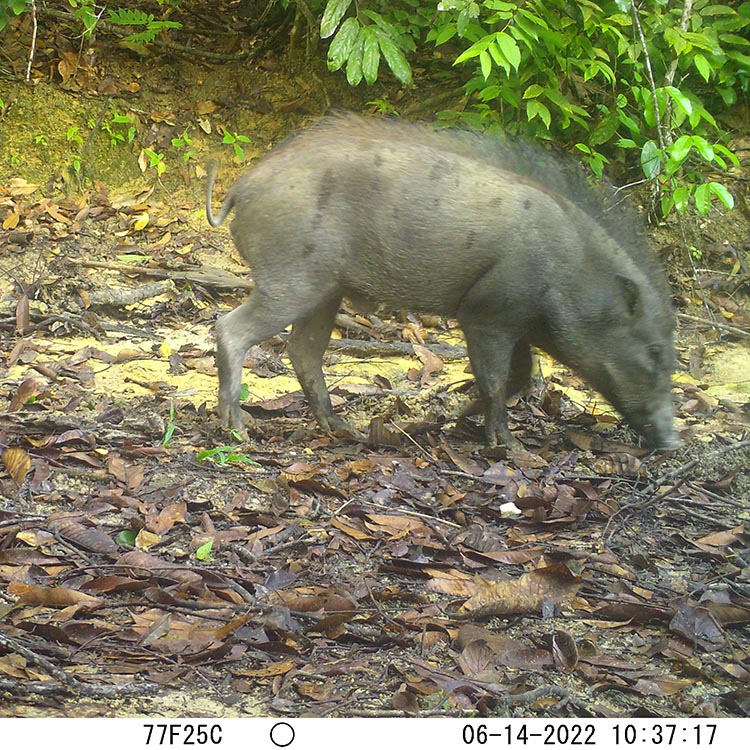
Above: A wild boar (Sus Scrofa) foraging in SE Asian forest. Ecological Cascades Lab
Light pollution and urban ecology: minimising harm to insectivorous bats
June 2023
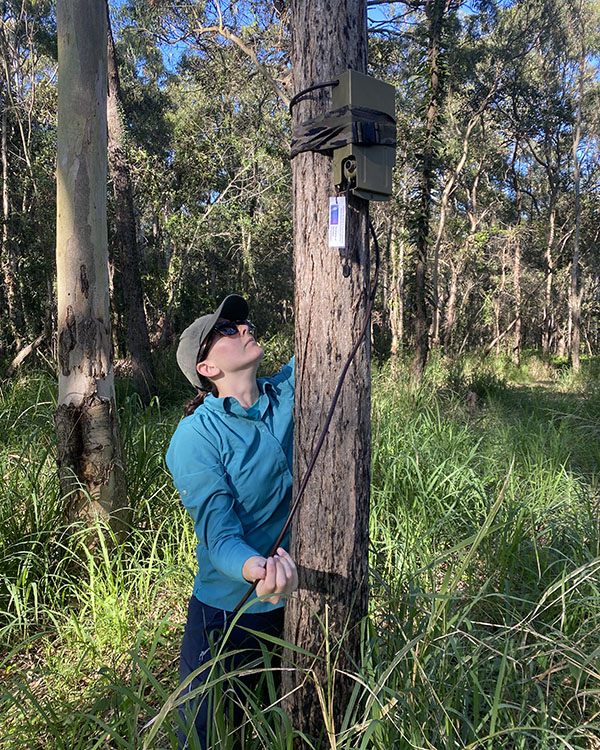
Above: Rani at work. Image: Rani Davis
CBCS Honours student Rani Davis has been garnering media for her work on the effect of artificial lighting on microbats: an ABC Radio interview, and a story in COSMOS magazine.
Rani completed a Bachelor of Science at The University of Queensland in 2021, majoring in Zoology and Ecology. Her Honours thesis was supervised by Dr April Reside and Dr Berndt Janse van Rensburg.
Rani’s study is the first to investigate the impact of light pollution on insectivorous bats in Brisbane, specifically, how the activity of two species of Australian insectivorous bats changes based on increasing distance from streetlit pathways: the white-striped free-tailed bat (Austronomus australis) and the little bent-wing bat (Miniopterus australis). The work aims to inform the placement of light sources around important habitat for these light-sensitive species to minimise harm to them.
Read the COSMOS article here, and listen to the radio interview here (it starts at 1 hour 17 minutes in).
